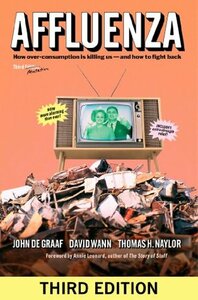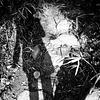Take a photo of a barcode or cover
45 reviews for:
Affluenza: How Overconsumption Is Killing Us and How to Fight Back
Thomas H. Naylor, John De Graaf, David Wann
45 reviews for:
Affluenza: How Overconsumption Is Killing Us and How to Fight Back
Thomas H. Naylor, John De Graaf, David Wann
funny
informative
reflective
fast-paced
I feel like cleaning out a closet.
I also feel embarrassed......
I also feel embarrassed......
Good ideas but not a very good read. Lots of anecdotes from random people and many opinions. In summary - tv is bad, capitalism is bad (but everything else so far seems worse). Lots of people have very skewed relations with reality, themselves, and money.
I almost quit reading but powered through the end to get some fairly unhelpful random ideas on raising kids.
I almost quit reading but powered through the end to get some fairly unhelpful random ideas on raising kids.
informative
reflective
slow-paced
Interesting. Live simply, relinquish materialism, learn to find more fulfilling pleasure in nature and giving, rather than buying and the moremoremore mentality.
When you want the beliefs you already hold confirmed by a book.
I liked the book, but found it a bit disappointing. I'd heard very excellent things about it, and it didn't quite live up to par. The writing is a little lackluster -- the authors aren't particularly gifted with prose, and the rhetoric was a little much at times. More importantly, I didn't feel like I'd learned anything by the end of the book. As someone who's been thinking about these issues for a long time, the book felt more like a righteous snobfest than something that really expanded my knowledge and understanding of affluence-related problems. I still enjoyed myself, because it's hard not to enjoy righteous snobfests that you believe in, but I wouldn't recommend it to people who are already well-informed about these topics.
However, I ::would:: recommend it to people who are just getting into these issues. It's an approachable, manageable book, and (despite the hardcore rhetoric) does have some good data and explanations.
However, I ::would:: recommend it to people who are just getting into these issues. It's an approachable, manageable book, and (despite the hardcore rhetoric) does have some good data and explanations.
challenging
funny
hopeful
informative
inspiring
reflective
medium-paced
Good advice. Throughout other books are referenced I'm planning now to read. Worth the read.
emotional
funny
hopeful
fast-paced
This book is in three parts. The first part is the longest, and it talks about how much we consume and some of the problems it causes. Some of it was interesting, even eye-opening, but it went on way too long. The last two parts, which covered the history of consumption, changing lifestyles, why the workweek is the way it is (part two), and what people are doing to change themselves or the culture (part 3) were more interesting (and more compact). Would probably have rated it 2 and a half stars if I could have.





